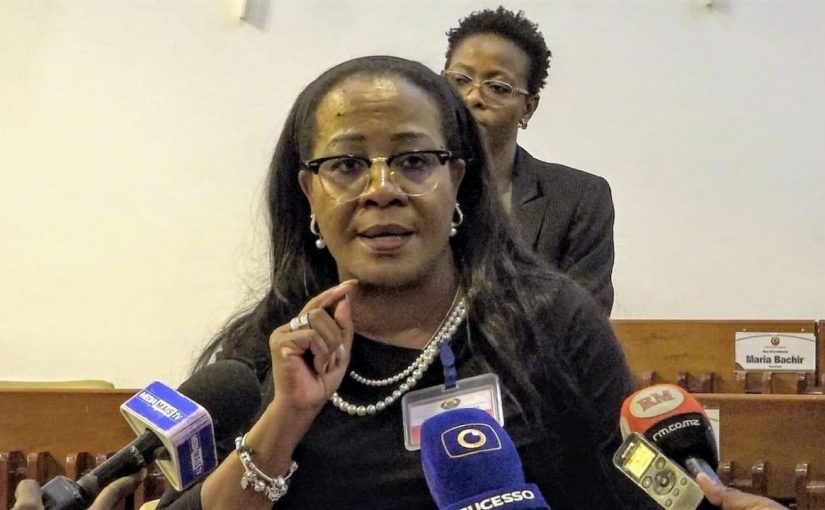Mozambique: Mondlane’s Anamola party registers over 64,000 members in ten days
Mozambique: Probity law ‘not out to get anyone’ – minister

Image: AIM
Mozambique’s minister of justice, Helena Kida, said in parliament on Wednesday that the revision of the public probity law “is not intended to persecute” anyone, but rather to prevent acts of corruption, namely by extending the obligation to declare assets.
“This law is not intended to persecute people. If I know that the assets I own are legally acquired, then I have no problem in declaring them,” she explained, regarding the change to the mandatory declaration of assets for some state employees.
Before the deputies of the specialised parliamentary commission, the Minister of Justice, Constitutional and Religious Affairs defended the proposal, which includes the extension of the mandatory declaration of assets.
“Sometimes the money is not taken from the state itself, but it is based on the function that one occupies, that one can get from several people. These are the favours that are given and which however have payments in return. This is the mechanism for better understanding who has what, but more than that, how they got it,” Kida explained.
“It’s a cycle in which if you’re clean, there’s no problem. It is also a mechanism that we think will serve to prevent acts of corruption,” she added.
The Mozambican government submitted to parliament a proposal to review the public probity law, obliging police officers, court officials and prison guards to declare their income and assets.
The proposal, reported in March by Lusa, imposes the obligation to declare income and assets on traffic police officers, municipal police officers, the president and employees of the Tax Authority, members of the National Criminal Investigation Service, members of the National Migration Service, prison guards and border guard police.
Employees working at border posts, employees of the National Institute of Road Transport, public servants in conservation areas and forest guards, employees of conservatories and notary offices and bailiffs and assistants to bailiffs are also subject to the same obligation.
The draft bill imposes the same duty on members of management and acquisition units, receivers, treasurers, tax collectors and others responsible, in law or in fact, for the collection, custody or administration of public funds and auditors and inspectors, at all levels.
The document states that the declaration “must contain in detail all the elements that allow for a rigorous assessment of the assets and income of the declarant and his or her spouse, minor children and legal dependents”.
The proposed revision of the public probity law maintains the current obligation to declare income and assets for holders or members of political bodies, judicial magistrates and the Public Prosecutor’s Office, judges advisors to the Constitutional Council, the Ombudsman and managers of the Service of Information and State Security.
Public servants holding positions or functions in a service commission, by election, appointment, hiring or any other form of investiture or connection, managers, administrators, coordinators and those responsible for projects, at all levels, to be implemented in the bodies of the State, are also required to declare income and assets.
The declaration must be made at the Attorney General’s Office, provincial attorney’s offices and district attorney’s offices for the entities corresponding to each of these levels and at the Administrative Court, for Public Prosecutor’s Office magistrates.
The declaration must be made at the beginning of the exercise of the position or function and at the end of it.
The government bases the proposed revision of the Public Probity Law on the argument that “the exercise of functions in public administration requires probity and respect for ethics, especially in the management of public affairs”.












Leave a Reply
Be the First to Comment!
You must be logged in to post a comment.
You must be logged in to post a comment.